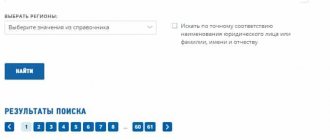ST 172 of the Criminal Code of the Russian Federation.
1. Carrying out banking activities (banking operations) without registration or without a special permit (license) in cases where such a permit (license) is mandatory, if this act caused major damage to citizens, organizations or the state or is associated with the extraction of income on a large scale, - shall be punishable by a fine in the amount of one hundred thousand to three hundred thousand rubles, or in the amount of the wages or other income of the convicted person for a period of one to two years, or by forced labor for a term of up to four years, or by imprisonment for a term of up to four years with a fine in the amount of up to eighty thousand rubles or in the amount of wages or other income of the convicted person for a period of up to six months or without it.
2. The same act: a) committed by an organized group; b) associated with the extraction of income on an especially large scale, - c) has become invalid, - is punishable by forced labor for a term of up to five years or imprisonment for a term of up to seven years with a fine in the amount of up to one million rubles or in the amount of wages or other income convicted for a period of up to five years or without it.
Defense in cases of illegal banking activities
Recently, the fight against cash withdrawal, which is classified by law as illegal banking activity, has acquired particular importance in our country.
It should be borne in mind that any “cash-out platform” is an organization created for the purpose of systematically carrying out illegal financial transactions, with a specific distribution of roles for its members and the establishment of a strict hierarchy between them. Based on the above, each case of initiation of a criminal case under Art. 172 of the Criminal Code of the Russian Federation is analyzed by law enforcement officials for the possibility of additional qualification of the activities of the accused under Art. 210 of the Criminal Code of the Russian Federation - organization of a criminal community or participation in it. The maximum punishment provided for in Art. 210 of the Criminal Code of the Russian Federation - twenty years in prison. The activities of clients of “cash platforms” are usually checked for the presence of the elements provided for in Article 199 of the Criminal Code of the Russian Federation - tax evasion. The main evidence in criminal cases under Article 172 of the Criminal Code of the Russian Federation is traditionally: • testimony of the “nominee” directors of shell companies involved in the scheme, using whose bank accounts illegal activities were carried out • testimony of accomplices and witnesses in the case • conclusion of a comprehensive forensic accounting examination regarding the establishment the amount of income received • the conclusion of a phonoscopic forensic examination regarding the identification of the voice in telephone conversations recorded by the investigation, etc. When commissioning a forensic accounting examination, investigators traditionally formulate the main question to the expert: “What is the amount of income received in the implementation of illegal banking activities, when calculated based on the percentage indicated by the investigator of the amounts passed through bank accounts involved in the process of carrying out illegal banking activities for a certain period of time?” period?". In practice, statements of bank accounts of companies controlled by the accused are seized and the amount of income is calculated by simply calculating the percentage specified by the investigator. This approach to calculating illegally obtained income cannot be called objective. So, not all funds passing through bank accounts participate in the same banking schemes. Also, not all identical transactions use the same percentage of the profits of persons carrying out illegal activities. Currently, the practice of investigating criminal cases involving illegal banking activities is changing. In 2022, the Moscow City Court, in its appeal ruling, pointed out the need for investigative authorities to describe in the indictment specific banking transactions carried out by the accused, indicating the time, place, method of their execution, as well as the size of each banking transaction. Thus, the investigative authorities must indicate the dates of transactions, the addresses of credit institutions where the accused, according to the charges brought, organized the opening of current accounts, carried out transfers, collection of funds, cash services, cash issuance, opening and maintaining bank accounts. Taking into account the position of the Moscow City Court, the practice of investigating criminal cases under Art. 172 of the Criminal Code of the Russian Federation (illegal banking activities) must change. Provided that the investigator describes all the circumstances of each banking transaction carried out by the accused, the procedure for calculating the income received will become significantly more complicated, which in turn will provide a competent lawyer for illegal banking activities with new opportunities to influence the investigation process and defend the interests of his client.
Commentary to Art. 172 of the Criminal Code
The criminal law provision provided for in Art. 172 of the Criminal Code, is special in relation to the norm enshrined in Art. 171 CC. The regulatory basis here is: a) Federal Law of December 2, 1990 N 395-1 “On Banks and Banking Activities”; b) Federal Law of July 10, 2002 N 86-FZ “On the Central Bank of the Russian Federation (Bank of Russia)”; c) Instruction of the Bank of Russia dated April 2, 2010 N 135-I “On the procedure for the Bank of Russia to make decisions on state registration of credit institutions and issuance of licenses for banking operations.”
Tasks of a lawyer in illegal banking activities
Faced with the task of defending a case of illegal banking activities, a lawyer under Art. 172 of the Criminal Code, first of all, must correctly assess the actual situation in which its client is located and answer the following questions:
1. Do the events considered in a criminal case constitute a crime? If so, which article of the criminal code provides for it? 2. What evidence does the investigation have of the client’s involvement in the crime? 3. What additional evidence is the investigator likely to obtain during the investigation? 4. What evidence of the client’s innocence is there in the criminal case materials? 5. What new evidence of the client’s innocence can the defense attorney obtain? 6. Is it possible and under what circumstances to terminate criminal prosecution against a client or reclassify his actions to another, softer article of the Criminal Code, for example, from Article 172 (illegal banking activities) to Article 171 of the Criminal Code of the Russian Federation (illegal entrepreneurship)? 7. What methods of procedural conduct and defense techniques are appropriate in this criminal case? 8. What is the likely judicial prospect of the case when using a particular defense option?
Having answered the questions posed, an experienced lawyer will be able to form a verified position on the procedural behavior of his client at this stage of criminal proceedings.
For a person suspected or accused of illegal banking activities, it is very important to find a good lawyer for economic crimes, provide your lawyer with detailed and truthful information about the case, and also help to understand the events that took place.
As part of the defense at the initial stage, it is advisable to focus efforts on the following areas: • Criticism of the investigation’s statements about the accused’s carrying out “banking transactions”, and not others allowed to be carried out without special permission • Criticism of the method of calculating the amount of income received • Analysis of the possibility of asserting non-involvement the defendant to the events being studied in the criminal case
In such a situation, the importance of building a defense by an experienced economic crime lawyer cannot be overestimated. A competent lawyer for illegal banking activities will help the client determine a comprehensive list and collect evidence of his innocence, as well as take the right position in the case.
Recommendations of a lawyer on illegal banking activities (p. 172 of the Criminal Code of the Russian Federation):
Are you accused of illegal banking activities? What to do?
If you are detained or summoned for questioning by an investigator, I recommend that you: • Immediately find a good lawyer specializing in economic defense and enter into an agreement with him for your defense. Only an experienced economic litigation lawyer will be able to professionally assess the situation and build a plan for your defense. • Refuse to give any testimony or explanation until you consult with your attorney. • Refuse the services of a lawyer invited by the investigator or operational officers if you do not have confidence in his qualifications and desire to provide assistance to you, and not to the person who invited him. • Remember all the circumstances of the events being considered in the case, carefully analyze them and present your considerations in detail to the defense attorney. • Together with your defense lawyer, determine a list of evidence of your innocence and/or mitigating circumstances and help the lawyer collect them. • In your testimony, strive to be as close as possible to the real state of affairs. Even the best lawyer in Moscow for illegal banking activities will not be able to formulate an impeccable version of events in the absence of appropriate evidence and prepare all participants in the process for a detailed interrogation by an experienced investigator. • Focus the investigator's attention on your desire to act within the law. Prove the absence of intent to commit a crime. No intent - no crime. • Refrain from petty troubles and unnecessary conflicts with the investigator. While performing his work, he may be subject to emotions. Another thing is his boorish behavior that clearly goes beyond the law. In this case, it is necessary to use all the methods provided by the Code of Criminal Procedure and other laws of the Russian Federation to protect the violated rights. • Prepare in advance for possible searches of residential and work premises, seizure of phones and computers, seizure of bank accounts, and possible detention.
Defense of a lawyer for illegal banking activities is most effective when he intervenes in the case at the very beginning of the process and coordinates the testimony and behavior of his client, protecting him from possible mistakes.
One of the trials I conducted in a criminal case about illegal banking activities: Fedosova S.
Do you have any questions? Do you need the help of an experienced lawyer regarding illegal banking activities? Contact us!
Criminal liability
Responsibility for illegal entrepreneurship and illegal banking activities for a person begins at the age of 16. In this case, persons associated with:
- organization and operation of platforms for illegal cashing out (hereinafter referred to as “cashout”) of funds;
- accounting employees engaged in the field of "cash";
- employees of banking institutions who allow settlements with clients, which are prohibited by law or require additional permits (licenses);
- It is extremely rare that the subjects include “cash out” clients.
Corpus delicti
The article on illegal banking activities (Article 172 of the Criminal Code of the Russian Federation) consists of two parts:
- provides for liability for illegal banking activities in the event of causing damage on a large scale or associated with the extraction of income (making a profit) in the same amount;
- provides for liability for similar actions, but in the presence of signs of an organized group or particularly large damage (profit).
note
You can report illegal banking activities to the tax office, OBEP or the prosecutor's office. For more information on how to do this, read the article here.
On the subjective side, there must be intent. When imposing a punishment, the court must take into account the goals and motives of the crime committed.
If we focus on which entity commits the crime in the form of illegal banking activities, then it can be either the head of a commercial structure or an ordinary employee who, by the nature of his or her activity, is charged with the functions of carrying out banking operations. Moreover, the subject may also be a citizen who is not officially an employee of the banking sector, but in reality is engaged in “cash out”.
Liability under Article 172 of the Criminal Code of the Russian Federation
Alternative sanctions under Part 1 of Article 172 of the Criminal Code of the Russian Federation:
- a fine from 100 to 300 thousand rubles (or in the amount of the income of the guilty person for a period of 1 to 2 years);
- up to 4 years of forced labor;
- up to 4 years in prison with a fine of up to 80 thousand rubles (or without a fine).
As for Part 2 of Article 172 of the Criminal Code of the Russian Federation, the penalties here are stricter:
- up to 5 years of forced labor;
- up to 7 years in prison.
As an additional punishment in the second case, a fine of up to 1 million rubles (or in the amount of the income of the convicted person for a period of up to 5 years) may be applied.
According to the Judicial Department under the Armed Forces of the Russian Federation , in the overwhelming majority of cases, courts prefer to impose a sentence of suspended imprisonment on citizens under Article 172 of the Criminal Code of the Russian Federation (221 sentences). In second place is actual placement in a colony (74 sentences).
Circumstances aggravating the guilt of a citizen are:
- commission of a crime by an organized group of subjects;
- making a profit on a particularly large scale (over 9 million rubles).
Lawyer's comment:
“If a credit organization illegally carried out banking activities, but this did not cause harm to other entities, then it can be brought to administrative liability under Part 2 of Article 15.26 of the Code of Administrative Offenses of the Russian Federation . The sanction includes a warning or a fine of 10-30 thousand rubles.
Criteria for recognizing banking activities as illegal
Banking activities will be considered illegal in the following cases:
- carrying out banking operations without a license;
- inaction, i.e. the same activity, but without registration of the subject.
In this case, criminal liability will arise in the event of at least major damage. If the damage does not reach, then the person is subject to liability under Article 14.1 of the Code of Administrative Offenses of the Russian Federation or one of the qualified articles of Chapter 15 of the Code of Administrative Offenses of the Russian Federation.
There must be a direct causal connection between the illegal actions committed and the receipt of income.
The amount of damage caused or income received will be counted from the moment of the first transaction performed in non-compliance with legal requirements.






